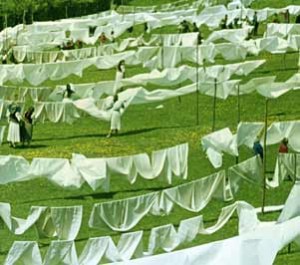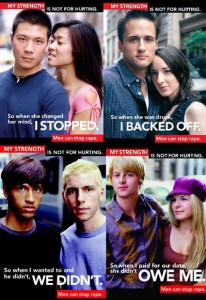Niste comentarii de la Crina pe marginea studiului “Ethnic minority and Roma women: a case study for gender equality?” [PDF] al Comisiei Europene, DG Employment Social Affairs and Equal Opportunities, cu privire la femeile rome:
Nu stiu daca stiti despre acest material. Eu am auzit de el acum doar acum 2 saptamani, la intalnirea de consultare pe sanatate [a European Women’s Lobby], unde era prezentat de catre Belinda Pyke, Director Equality between Men and Women, Action against Discrimination, Civil Society [European Commission] (tipa spunea ca: “The Romani women issues wasn’t an urgent issues until now, but it’s now a priority.”; raspunsul meu a fost: I think for us, Romani women issues was always urgent, but now, we have partners. It’s a good opportunity to initiate a common strategy etc. Let’s hope that they will consult us, as well….).
Nu am apucat sa-l citesc in intregime. La prima vizualizare insa, imi dau seama ca nu evidentiaza decat ceea ce stim deja… . Legislatie, ca suntem amarate etc… .
Este minunat sa avem in aceasta perioada un studiu la nivel european referitor la femeile rome, insa din pacate, asa cum se poate vedea si din lista de experti ai materialului (in exclusiune sociala!) abordarea este dusa in alta directie.
Da, imi place ca mentioneaza de cateva ori mediatorii sanitari din romania, si ca ofera perspectiva generala a situatiei femeilor rome… insa nu este in opinia mea ceva nou pe care sa putem lucra in continuare. Tot enuntare de legislatie, tot gagii. Dupa ce il citesc, am sa fiu mai clara in opinie, este doar o senzatie ca nu e tocmai ceea ce se astepta….
Si dupa ce si voi aveti un pic timp de el, poate discutam pe marginea lui.
[…] nu tb sa justific ca nu am nimic cu lucrurile facute de gagii pentru romi sau ca este obligatoriu sa fie si o romnie pe acolo etc. … . insa […] este evident ca exista un “noi” si “ei” si ca nu suntem pe aceeasi linie. studiul asta imi pare banal si as vrea sa vad o/un rom inclus. ma irita ca “acum suntem pe agenda lor”, tot prost si stereotipal. […]




